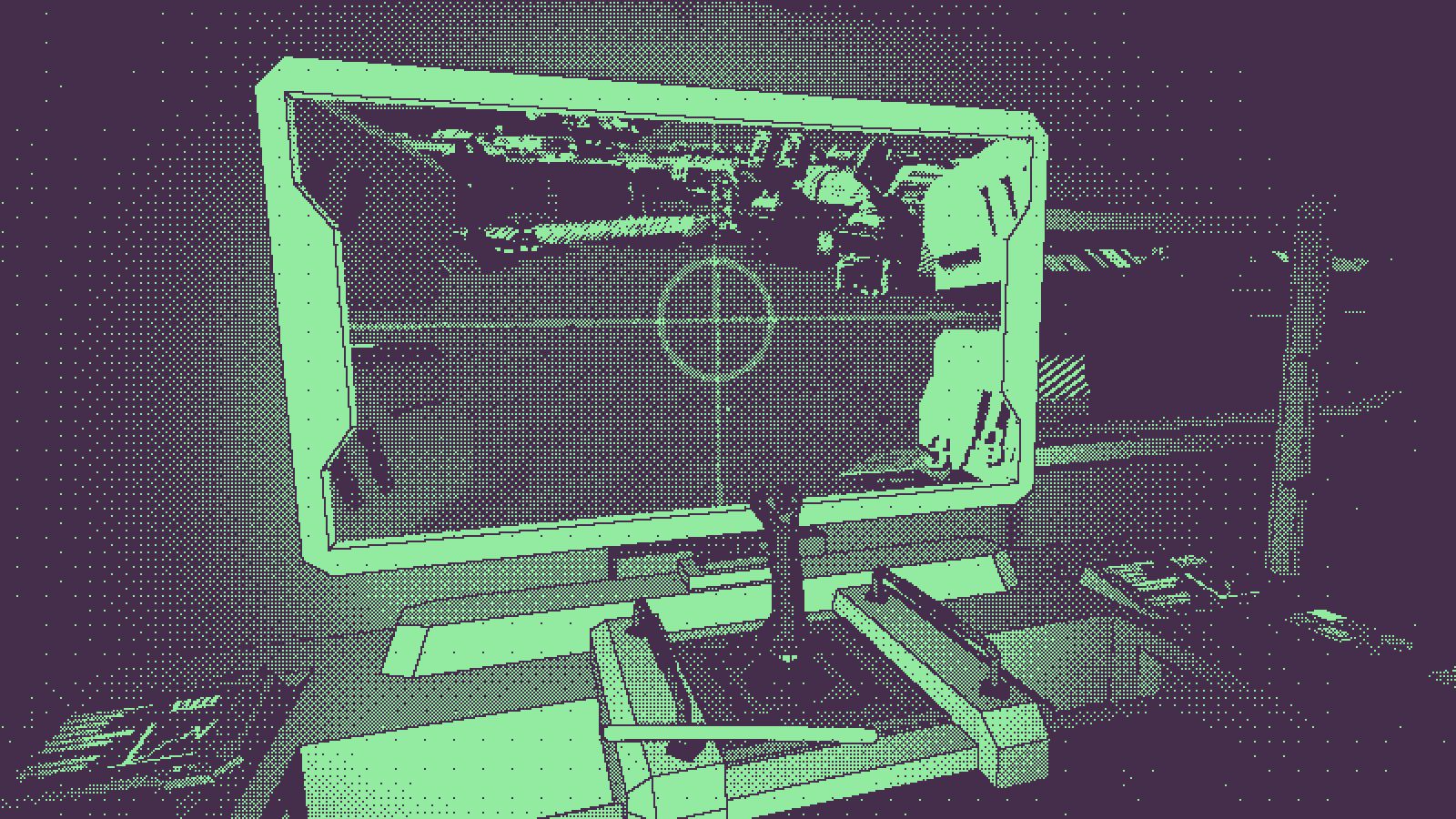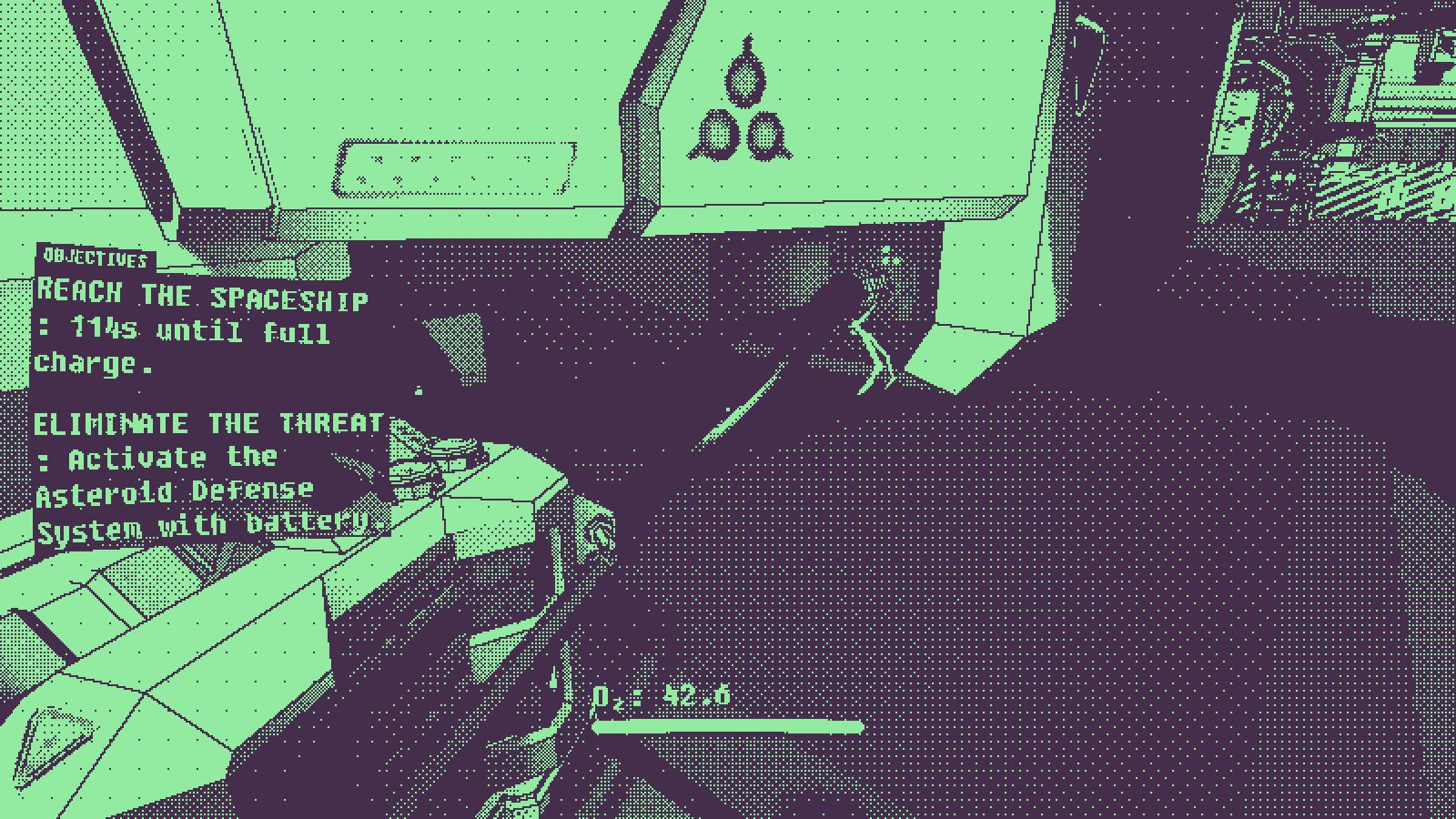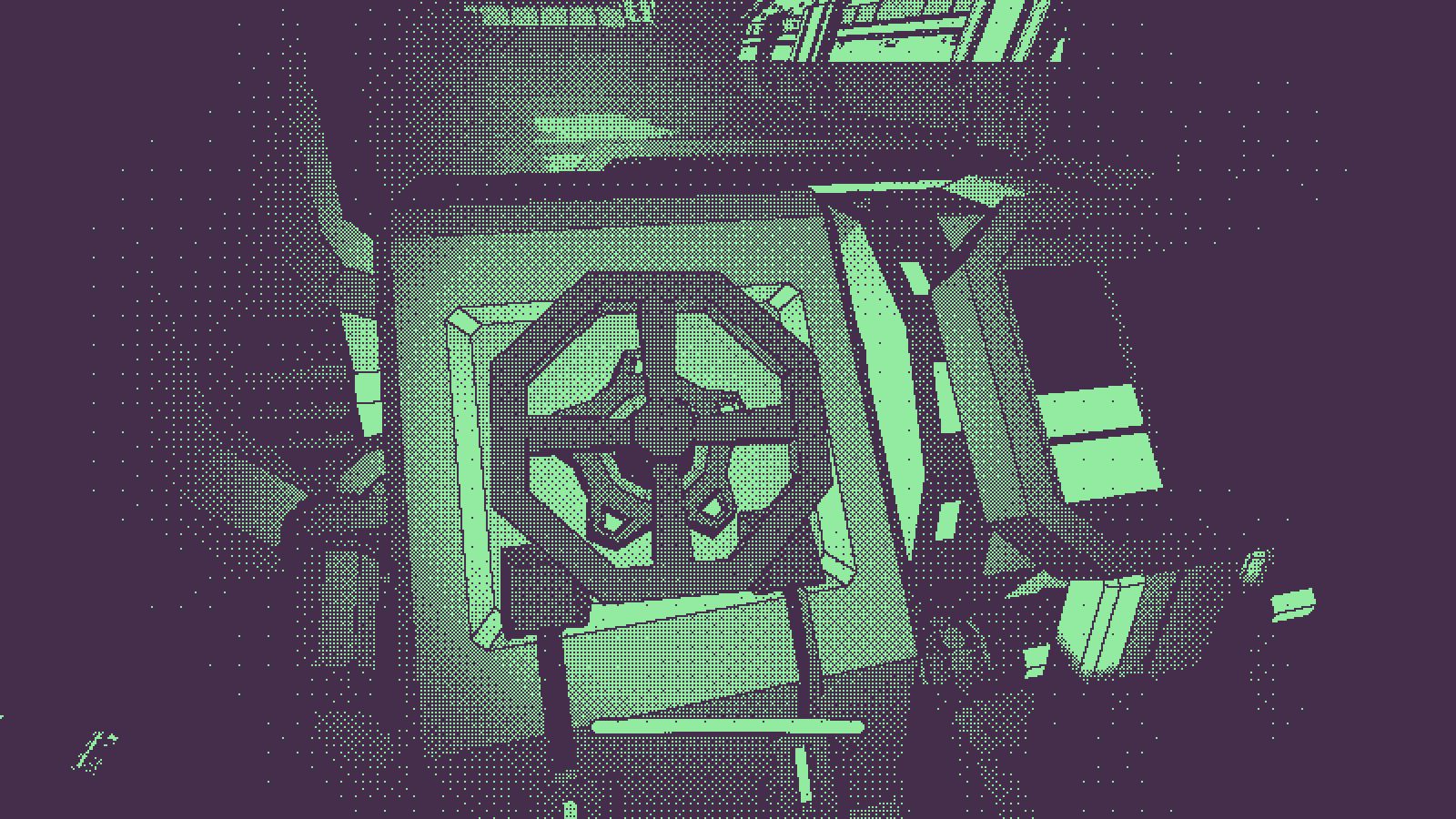I recently had the honor of attending PlayX4, a gaming convention in Gyeonggi-do, South Korea. During this time, I got to sit down and play Moonbase Lambda, a survival horror game by Thunderfox Studios inspired by games like Monstrum, Soma, and Shadow Corridor. The player takes the role of an unassuming spaceman, freshly awakened from cryosleep and trapped on Moonbase Lambda with… something. What it is doesn’t matter, all you know is that it’s taken one of your comrade’s bodies as a meat suit, and it’s looking for you next.
The gameplay is rather simple, you can walk, run, sneak, operate a flashlight, and interact with the objects of interest in the world around you. The game uses directional controls for activating objectives; pull a lever down by swiping the mouse down, and turn a valve by making circles.
Once you get your bearings, it’s time to start dealing with the issue at hand. There are three options available to the player; escape using the space shuttle, confront the monster head-on and kill it with a cannon, or outsource the dirty work to a rescue team that can be called in. In order to complete these missions, there are a variety of sub-objectives that the player needs to attend to.
Let’s say you want to escape via the shuttle, well, first you need to find a battery, then head over to the substation, plug the battery in to charge it (this takes a while), take the battery outside to the shuttle area, plug it into a cart, drag the cart over to the shuttle, and attach the plug to the shuttle. Oh, and the latter half of the tasks on that list take place on the runway, meaning you’ve only got one minute of oxygen before you need to refill at one of the pumps near the airlock to the base—an entrance that the monster is prone to appearing out of. Safe to say, the player has their work cut out for them.
The game’s real strengths are in its art direction and sound design. Moonbase Lambda employs a noise map, so the monster can hear any sound you make. Just about everything makes noise, from sub-objectives to the automatic doors that dot the hallways. This causes the player to become paranoid at every little noise; are the automatic doors you’re hearing closing behind you or opening for the monster? It soon became a ritual for me to make a mad dash away from the objective I had just completed, knowing that the monster would soon arrive to investigate. There are certain audio cues when the beast is close, like your droning heartbeat steadily increasing in volume, so look out for those.
The solo developer behind the game, Hyunan Kwon, made the sounds of footsteps intentionally confusing, saying “I wanted to make players confused with the footstep sound, is that sound coming from me or the monster?”
On the visual side, Moonbase Lambda uses a one-bit dithering effect that was inspired by Return of Obra Dinn. The shader strains your vision and gives off the effect of oxygen deprivation and delirium. The outcome of this is twofold, firstly, it forces the player to use their flashlight, which is practically a beacon for the monster, and secondly, it causes paranoia to sink its teeth into the player. Was that the monster you saw in the distance, or were your eyes playing tricks on you?
Most of the time, the creature looks like a typical suited spaceman, but observing its movements makes it crystal clear that whatever remains of your friend is just being puppeted around. Watching the creature lurch forward like a marionette wielded by a madman is unnerving, it really makes you feel for whoever your unlucky comrade was who fell into the creature’s clutches, and motivates you to avoid the same fate. The time I stepped out of the airlock, only to see the monster slowly clambering across the barren moonscape, lives rent free in my head. Even with such simple graphics, I felt utterly horrified in a way most games couldn’t even come close to making me feel.
The constant pressure of timed elements is another ingredient in the fear sandwich. As mentioned before, some areas are oxygenless, so you only get a minute tops. In the same vein, the maps you can find around the station have to be cranked to charge and will lose power over time. Don’t even think about trying to memorize the map, as it’s procedurally generated for each escape attempt. Then there’s the timer that’s constantly in the back of your mind, a silent clock that fills your head with noise, one that takes the form of a simple question—when will the monster pop up again?
Overall, Moonbase Lambda’s simplicity is matched only by its potency at making the player so paranoid that they wonder if their own footsteps are out to get them. If I could describe the game in one word it would be: disorienting, but it’s disorienting in the best possible way. I rarely felt like my disorientation was harming the gameplay experience, instead it leant to the slow burn psychological horror. If you’re interested, then Moonbase Lambda will be released on Steam sometime in 2024. An early build of the game is available on Itch.io.
![Moonbase Lambda preview [PlayX4] — A moon base for two](/content/images/size/w30/2025/02/image004-1-12.jpg)



















